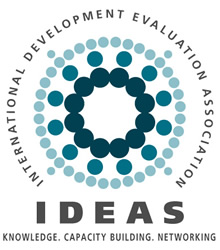Gain the skills and knowledge to more effectively shape policy with evidence.
There is increasing pressure on government officials, research programmes and NGOs to make better use of evidence to produce viable policy options. Influencing decision makers and contributing to policy formulation and implementation with research requires an explicit focus on power and politics – seeking ways to promote positive change in highly complex policy environments.
“The course strengthened by understanding of the link between evidence and the politics of influencing social change in a complex world. I particularly enjoyed the networking and interaction with people from different disciplines across the globe.” – Aileen Patricia ODonovan, Deputy Head of Development, Irish Aid Ethiopia
You will join research programme managers, government officials and policy advocates to explore what we mean by evidence, whose knowledge really counts and how you can more effectively engage and shape policy with evidence. You will acquire conceptually rigorous tools for analysing policy context, identifying and assessing policy relevant research and framing it for policy. The course attracts a diverse range of evidence producers and users, advisors and advocates, which provides you with a unique opportunity to share learning and reflect on your own organisational context and how to make better use of research.
“Being able to spend three days at IDS with a really fascinating group of other students (consultants, government officials, and fellow NGO staff) allowed me to learn and consider how evidence can better inform my work, thereby making me a stronger and more effective advocate in global policy spaces.” – Kathryn Tobin, Advocacy Coordinator, WaterAid
Unfortunately we are unable to offer scholarships for this course.
Course aims
To equip you with the concepts, skills and competencies required to operate effectively at the interface between policy and research. To enable you to design achievable plans to produce, review and communicate research and to enhance your capacity to deliver rigorous compelling evidence-based policy offers.
Who should attend?
The programme is ideally suited to those leading policy and research in their organisation or programme who are seeking to enhance their evidence literacy and policy engagement capacity to become more effective advocates for social change.
Whether your key interests relate to understanding policy processes in a particular context, developing proposal winning evidence uptake strategies, or adapting to fast-changing demands for research, we will help you locate your work in relation to the theory and latest trends in knowledge for development.
You will join an international cohort of policy and evidence innovators from governments, development agencies, charities, social enterprises and research organisations, to share learning and gain new insights into improving policy processes through better use of evidence.
Previous clients include: BBC Media Action, Federal Ministry of Agriculture and Rural Development, Nigeria; International Indigenous Women’s Forum; International Growth Centre, Irish Aid; Macedonian Center for International Cooperation; Queen Rania Foundation; Save the Children; Tanzania Commission for Science and Technology; UNICEF; University of Sussex; UN Women; Water Aid.
How you’ll learn
Our new online programme combines lectures, peer learning seminars, practical exercises, and presentations. Through the course, you will develop a framework for strengthening evidence informed policy and practice focused around specific aspects of evidence literacy and adaptive policy engagement.
A pre-course induction, to introduce the digital learning platform and help you with any technical queries, will take place on Wednesday 10th February.
The course will run over five weeks starting on Monday 15 February and finishing on Thursday 18 March.
It will require six to eight hours of your time per week. This will consist of a mix of lectures and seminars, Q&A sessions, facilitated group work and self-directed learning.
The course has been designed to allow you to work as flexibly as possible but approximately 2.5 hours per week will be made up of scheduled sessions at fixed times. These seminars plenary discussions and study groups will take place on Tuesdays and Thursdays between 12:00 and 14:30pm UK GMT. Pre-recorded lectures and presentations will be available from Monday each week.
The timing of sessions will be confirmed and agreed with participants once registration has closed. Whilst we will try to accommodate participants needs and adjust to take account of different time zones, it may not be possible to accommodate everyone so some flexibility will be required.
Learning outcomes
After completing this course you will be able to:
- Re-evaluate your organisation’s or programme’s use of evidence and theories of change.
- Adapt to fast-changing policy demands and deploy new tools for understanding how change happens in a particular context.
- Systematically identify and appraise policy relevant evidence.
- Frame research for policy and practice and develop compelling evidence informed policy offers.
Course contributors
James Georgalakis, Course Director, Director of Communications and Impact, IDS
James has worked predominantly in advocacy and policy communications roles over the past 20 years, joining IDS in 2010. He has delivered learning events on policy engagement for researchers and practitioners to many university faculties, research organisations and NGOs in South Asia, Africa, Eastern and Central Europe and the UK. He is also Director of the Impact Initiative for International Development Research.
Jessica Meeker, Knowledge Officer, IDS
Jessica is a Public Health Nutritionist (LSHTM) with research interests in malnutrition in all its forms and nutrition sensitive approaches. She works as a Knowledge Officer in the Knowledge, Impact and Policy team, co-ordinating a number of projects with a focus on research uptake, stakeholder engagement and policy influence. Before joining IDS, Jessica worked in the Policy and Advocacy department for Save the Children UK and at the Centre for International Health and Development, UCL where she worked on developing a competency framework for staff working in emergency settings.
Alan Stanley, Knowledge Manager, IDS
Alan has over 20 years’ experience developing and delivering high quality websites, digital content and publications on a broad range of development and environmental issues. A key theme throughout his work has been promoting open and equitable access to information using digital technologies. He manages Eldis – one of the leading global portals providing access to research on international development.
Louise Clark, Monitoring, Evaluation and Learning Manager, IDS
Louise has worked as a monitoring, evaluation and learning professional for the past 10 years, in which time she has worked for both Oxfam America and Action Aid International and as an independent evaluator. She has a particular interest in Theory of Change as a tool to build shared ownership of project outcomes and to challenge assumptions about how change happens to support learning and improvement.
Please note that course facilitators may be subject to change.
Entry requirements
The course is taught in English. To derive the maximum benefit from the course, you should be proficient in English and able to take an active part in discussions. Your English needs to be of an intermediate standard or higher. Ideally you will have an International English Language Test System (IELTS) score of 6.5 or above, or a Common European Framework for Languages (CEFR) score of B2 or above.
Participants will need an internet connection sufficient to stream live video (Zoom, Facetime or similar) in order to engage fully with the course.
Course fees
£995 per person
Once you have received confirmation that your application has been approved, the fee must be paid in full to secure your place on the course.
Charities, civil society and public sector
A limited number of discounted places (20 per cent discount) are also available for participants from small not-for-profit organisations (income under £10 million), plus civil society and public sector organisations in low income countries. This is at the discretion of the course convenors. Please indicate in your application if you wish to be considered for this discount.
IDS alumni bursary
We are pleased offer one bursary for IDS alumni. This single award, funded by IDS, is in the form of a 20 per cent course fee discount. It is subject to terms and conditions, and will be offered to one applicant on a first-come first-served basis. Please indicate on your application form that you wish to be considered for this bursary.
How to apply
Before applying please read our short course booking Terms and Conditions (pdf) and IDS Code of Conduct (pdf).
The application procedure is a three-stage process:
Stage 1: Apply by completing the online application form. Deadline for applications is 31 January 2021.
Stage 2: You will be notified within one month as to whether your application has been approved or not. Successful applicants will receive the registration form and an invoice for the course fee. Places on the course are not guaranteed until fees have been received.
Stage 3: Once fees have been received, you will be sent confirmation of your place on the course.
This is course is run regularly. To register your interest in future sessions, please contact us at: shortcourses@ids.ac.uk
Teaching staff
 |
James Georgalakis
Director of Communications and Impact |
 |
Alan Stanley
Digital Knowledge Manager |
 |
Louise Clark
MEL Manager |
 |
Jessica Meeker
Knowledge Officer |
 Short Course Coordinator
Short Course Coordinator
[cs_element_gap _id=”18″ ]



